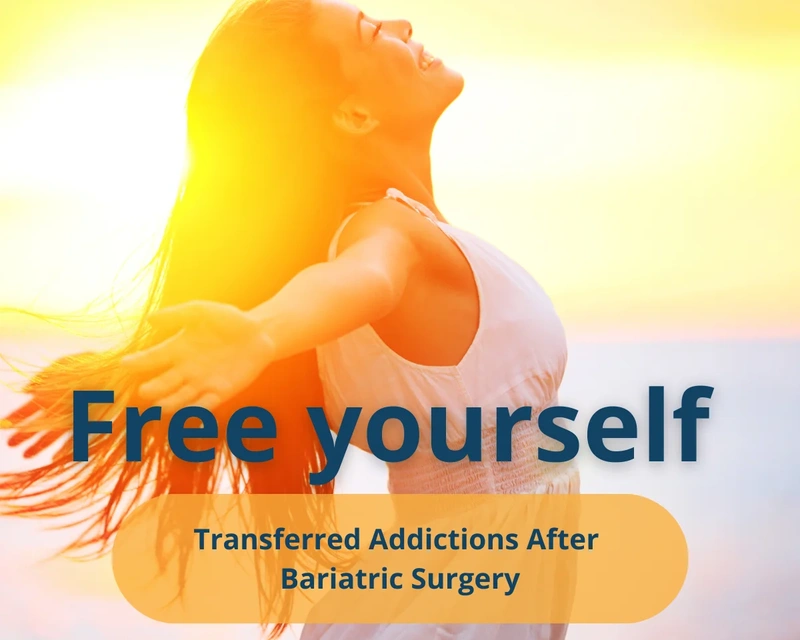
Transferred addictions after bariatric surgery
Most of us know the phrase “I’m an emotional eater” — but do we really understand what that means?
At Weight Loss Latvia, we meet many people who aren’t just eating because they’re hungry. They’re eating because they’re stressed, sad, overwhelmed… or even bored. And very often, they don’t realize it’s become a form of self-soothing or coping. And it results with overweight and even obesity, developing other diseases like Diabetes type 2, hypertension, high cholesterol, sleep apnea, joint and back issues and other.
So let’s talk about it honestly — about emotional eating, physiological hunger vs. psychological hunger, and how to prevent one addiction (food) from quietly shifting into another (alcohol, overspending, risk-taking) after surgery.
1. Eating as Comfort – It’s More Common Than You Think
Eating doesn’t only fuel your body — it can soothe your nervous system, release feel-good hormones (like dopamine), and help you feel grounded when emotions feel overwhelming.
That’s why food becomes our "go-to" in moments of:
- Stress at work
- Relationship conflict
- Anxiety or sadness
- Fatigue or burnout
- Feeling unappreciated or alone
These are not just habits. They are coping strategies. And many of us have learned to eat to feel better, not just to feel full.
2. After Bariatric Surgery – You Can Not Eat the Same Way Anymore
After bariatric surgery, your new stomach physically can't tolerate the same emotional eating patterns. You get full quickly. You may feel discomfort or even pain from overeating. So what happens next?
If we don’t address the underlying reasons for emotional eating, some patients unknowingly transfer that need for relief to something else — something that gives a similar “hit” of dopamine or distraction.
3. Transferred Addictions: What You Should Know
This phenomenon is called addiction transfer (or cross-addiction). It means the behavior changes, but the emotional need remains.
Common transferred addictions after bariatric surgery can include:
- Alcohol
- Drugs or prescription misuse
- Compulsive shopping
- Excessive screen time, gaming, or social media
- Excessive overworking, workaholism
- Extreme exercise
- Risky relationships or compulsive behaviours
- Sex addiction
These are often unconscious. The person isn't doing it intentionally — they’re still looking for something to fill that emotional gap food used to cover.
4. How to Stay Aware & Protect Your Wellbeing
We’re not here to judge — we’re here to support and guide you. Here are some tips to protect yourself -
✅ Start building awareness now. Ask yourself - Am I really hungry? Or am I feeling something else?
✅ Keep a journal. Track your emotions and urges - even just for 5 minutes a day.
✅ Find new coping tools. Try breathing exercises, walking, yoga, listening to music, talking to someone, journaling, or taking a bath.
✅ Get support. Therapy, support groups (join Weight Loss Latvia Facebook group), or bariatric coaching (we offer you our excellent Van Patel, bariatric dietitian) can be life-changing.
✅ Talk to us. Our team at Weight Loss Latvia is here for you long after surgery - not just for your weight loss, but your wellbeing.
5. Your Healing Goes Deeper Than Your Stomach
Bariatric surgery is about more than losing weight — it’s about creating a new relationship with your body, your habits, and your emotions.
So yes, food may have been your comfort, your friend, your relief. And it’s OK to grieve that. But it’s also the beginning of discovering new ways to take care of yourself — in ways that are truly nourishing.
You’re not alone — and you don’t have to figure it all out yourself!
If you're preparing for surgery or already on your weight loss journey and want to understand your emotional eating patterns better, reach out to us! We'll help you navigate it with honesty, empathy, and real tools that work.
💬 Send us a message & Book your free online consultation!
🧡 With care,
Ilva, Weight Loss Latvia